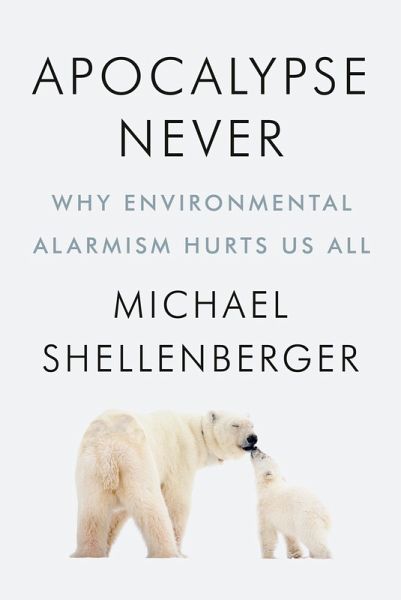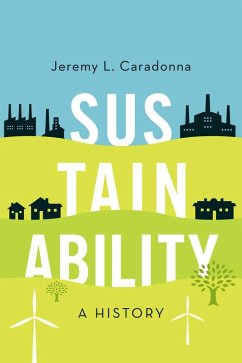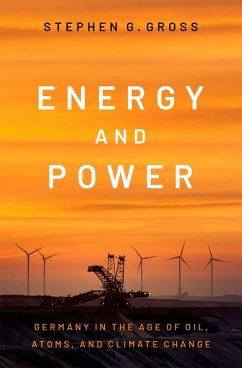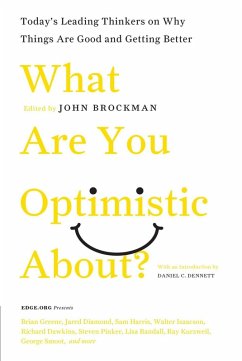
Apocalypse Never (eBook, ePUB)
Why Environmental Alarmism Hurts Us All
Versandkostenfrei!
Sofort per Download lieferbar
17,99 €
inkl. MwSt.
Weitere Ausgaben:

PAYBACK Punkte
0 °P sammeln!
Now a National Bestseller! Climatechange is real but it's not the end of the world. It is not even our mostserious environmental problem. Michael Shellenberger has been fighting for agreener planet for decades. He helped save the world's last unprotectedredwoods. He co-created the predecessor to today's Green New Deal. And he led asuccessful effort by climate scientists and activists to keep nuclear plants operating,preventing a spike of emissions.But in 2019, as some claimed billions ofpeople are going to die, contributing to rising anxiety, including amongadolescents, Shellenberger decided t...
Now a National Bestseller!
Climate
change is real but it's not the end of the world. It is not even our most
serious environmental problem.
Michael Shellenberger has been fighting for a
greener planet for decades. He helped save the world's last unprotected
redwoods. He co-created the predecessor to today's Green New Deal. And he led a
successful effort by climate scientists and activists to keep nuclear plants operating,
preventing a spike of emissions.
But in 2019, as some claimed billions of
people are going to die, contributing to rising anxiety, including among
adolescents, Shellenberger decided that, as a lifelong environmental activist,
leading energy expert, and father of a teenage daughter, he needed to speak out
to separate science from fiction.
Despite decades of news media attention, many
remain ignorant of basic facts. Carbon emissions peaked and have been declining
in most developed nations for over a decade. Deaths from extreme weather, even
in poor nations, declined 80 percent over the last four decades. And the risk
of Earth warming to very high temperatures is increasingly unlikely thanks to
slowing population growth and abundant natural gas.
Curiously, the people who are the most
alarmist about the problems also tend to oppose the obvious solutions.
What's really behind the rise of apocalyptic
environmentalism? There are powerful financial interests. There are desires for
status and power. But most of all there is a desire among supposedly secular
people for transcendence. This spiritual impulse can be natural and healthy.
But in preaching fear without love, and guilt without redemption, the new
religion is failing to satisfy our deepest psychological and existential needs.
Climate
change is real but it's not the end of the world. It is not even our most
serious environmental problem.
Michael Shellenberger has been fighting for a
greener planet for decades. He helped save the world's last unprotected
redwoods. He co-created the predecessor to today's Green New Deal. And he led a
successful effort by climate scientists and activists to keep nuclear plants operating,
preventing a spike of emissions.
But in 2019, as some claimed billions of
people are going to die, contributing to rising anxiety, including among
adolescents, Shellenberger decided that, as a lifelong environmental activist,
leading energy expert, and father of a teenage daughter, he needed to speak out
to separate science from fiction.
Despite decades of news media attention, many
remain ignorant of basic facts. Carbon emissions peaked and have been declining
in most developed nations for over a decade. Deaths from extreme weather, even
in poor nations, declined 80 percent over the last four decades. And the risk
of Earth warming to very high temperatures is increasingly unlikely thanks to
slowing population growth and abundant natural gas.
Curiously, the people who are the most
alarmist about the problems also tend to oppose the obvious solutions.
What's really behind the rise of apocalyptic
environmentalism? There are powerful financial interests. There are desires for
status and power. But most of all there is a desire among supposedly secular
people for transcendence. This spiritual impulse can be natural and healthy.
But in preaching fear without love, and guilt without redemption, the new
religion is failing to satisfy our deepest psychological and existential needs.
Dieser Download kann aus rechtlichen Gründen nur mit Rechnungsadresse in A, B, BG, CY, CZ, D, DK, EW, E, FIN, F, GR, HR, H, IRL, I, LT, L, LR, M, NL, PL, P, R, S, SLO, SK ausgeliefert werden.













